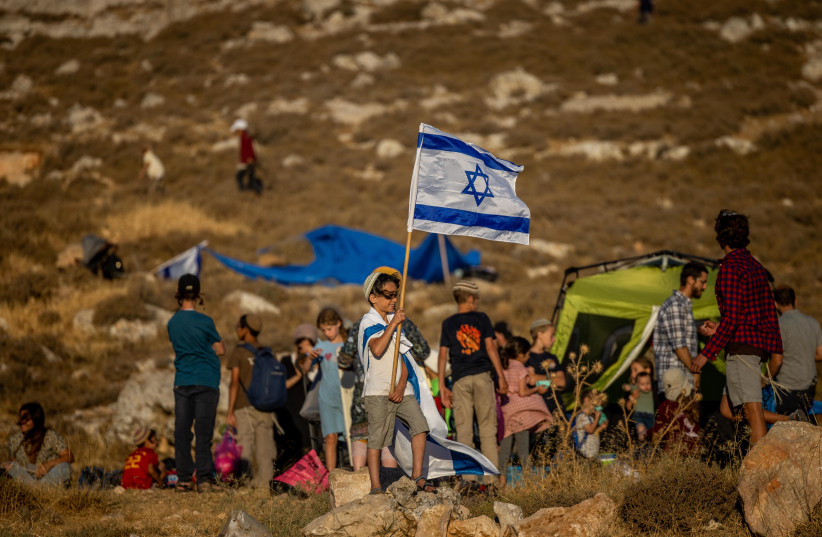The security cabinet on Sunday decided to approve the authorization of nine illegal outposts in the West Bank. Two of them will be combined into one community.
The impetus for the extremely rare move was last Friday’s horrendous terror attack in which a Palestinian driver rammed his car into a bus stop in Jerusalem’s Ramot neighborhood, killing three people and injuring more. The images of the two young brothers who were killed, – Yaakov Pally, six, and Asher, eight - have been burned into the collective consciousness of the country.
But despite the pain and anguish, the decision to link a terror attack and legalizing outposts into settlements is a flawed one.
Reasons behind the settlement creation
If the main reason to create settlements is to exact some kind of revenge against the Palestinians in the never-ending land grab between Israel and the PA in the West Bank, then it calls into question the whole nature of the settlement movement. Are the settlements merely bargaining chips after terror attacks? Shouldn’t there be a process full of debate and transparency about which areas should be legalized, based on some kind of strategic or historic logic? Instead, we are given a fait accompli, with no input from outside the security cabinet.
“The Israeli government is sending a clear message today to all our enemies: In the face of your attempts to harm us and weaken our hold on our land, we are deepening our roots, building and establishing settlements,” Finance Minister Bezalel Smotrich said after the decision.
He claimed that the action of legalizing the outposts shows that terrorism will not weaken us and that acts of terror will be answered with further construction.

Authorizing the outposts is instead part of politics and about giving Smotrich as well as National Security Minister Itamar Ben-Gvir a win for their voter base.
There is an argument to be made that some of the outposts were built at the scenes of past terrorist attacks and therefore, their legalization in response to terrorism, is a natural one. It is also true that without the terror attacks, it would be harder to pass such a decision without a strong international condemnation. While there will definitely be a negative international response, the deadly terror attacks ease the blow.
Nevertheless, the legalization and expansion of Jewish settlements in Judea and Samaria must be a decision taken for strategic or historic reasons, not at a moment’s notice in response to this or that terrorist attack.
The country should ask itself if the government would be authorizing the outposts if there had not been a recent spate of terror. We must refrain from politicizing the Civil Administration and planning authorities but that is exactly what happens now that 10,000 new housing units will be approved in the West Bank. Besides the asymmetry involved in answering terror with settlements, another concern is that these kinds of decisions will create tensions with our allies and friends, mainly the United States, which has already expressed reservations about such moves.
This comes at a sensitive time in relations between the two countries, as Israel seeks visa-free travel to the US and President Joe Biden has made it clear that the Netanyahu government’s push for the judicial overhaul should be a consensus decision.
It’s clear that Israel’s presence in the West Bank is not going to end, and that hundreds of thousands of Israelis are not going to be removed. However, our legitimacy to live in the West Bank must rest on more than quick decisions to legalize some places because of murderous attacks.
Everyone is in agreement that there must be a price for terror. However, it’s not clear that legalizing nine outposts sends a message that will deter terror attacks.
The government should not link settlements to these murderous attacks. It harms our image, conflates the attacks with the settlements and does not do justice for victims.
